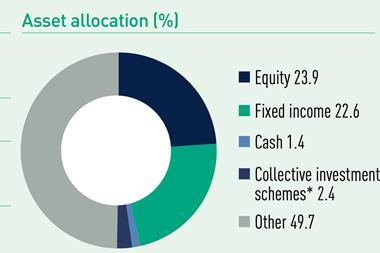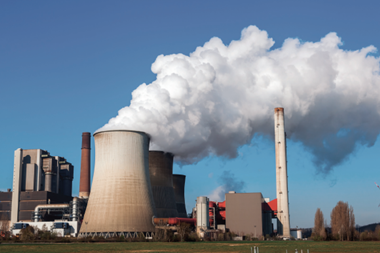Danish pension fund AkademikerPension said it expects the multi-year divestment of all the world’s largest upstream oil and gas companies it has just completed to boost its investment returns over the long term.
The DKK136bn (€18.2bn) pension fund revealed yesterday that it had divested Italian oil and gas company Eni – investments which amounted to DKK33bn before the decision. The move marked the end of AkademikerPension’s “history of active ownership of the world’s largest upstream oil and gas companies”, the pension fund said.
Asked by IPE how investment returns would be affected by this latest divestment, as well as by all the exclusions of this type since 2018, chief investment officer Anders Schelde said: “In isolation a negligible effect from the divestment of Eni, but from our full fossil fuel exclusion we expect a positive long-term investment return impact.
“Short to medium term, though, it will mean slightly more volatile investment returns when measured vis-à-vis our benchmark,” he said.
Schelde said AkademikerPension had tried over a number of years, together with other investors, to get these companies to change their climate course.
“We have to realize that the top management in the oil and gas sector simply refuse to do so in manner consistent with the goals of the Paris agreement,” he said.
“Therefore, we have now sold off and excluded Eni, the last remaining upstream fossil fuel company in our portfolio,” he said.
The Danish pension fund said most oil majors had been excluded several years ago, but Eni had been allowed to remain as an eligible investment while the fund tried to influence management via active ownership.
But after a meeting with Eni this spring, the pension fund said it was clear that fossil fuel expansion and exploration remained a central part of the business strategy.
“For AkademikerPension, this is the main reason for the exclusion, as there is no room for new fossil fuel projects in Paris-compatible scenarios, according to the International Energy Agency, and we believe that doing so exposes Eni to unacceptable long term risks,” Schelde said.
“Through a subsidiary, ENI will expand exploration for oil in vulnerable Arctic areas, which just confirms to us that Eni is a company that belongs on our exclusion list and not in our portfolio,” he said.
Asked to comment on AkademikerPension’s decision and comments, a spokesperson for Eni told IPE: “Eni reiterates its strong commitment toward net zero emissions by 2050, while contributing with its diversified resources portfolio to meet the global energy demand, supporting security of energy supplies and economic sustainability of energy.”
In total, AkademikerPension said it had divested shares and bonds in oil, gas and thermal coal worth DKK3.7bn since 2018.
From an investment return perspective, the pension fund said this overall divestment decision had been “neutral to slightly positive” since 2018.
AkademikerPension said it had increased its focus gradually over recent years on high/medium high emitters outside the oil and gas sector as well as banks, which financed oil and gas.
So far, this work had culminated in a number of votes against directors in the 2023 AGM season in companies without a Paris-aligned transition plan in place, including Eni, RWE, Barclays, Morgan Stanley and Nordea, Schelde said.
“But we do not think this will lead to broad-scale sector exclusions, so it is a priority for increased engagement,” the CIO told IPE.
Read the digital edition of IPE’s latest magazine























